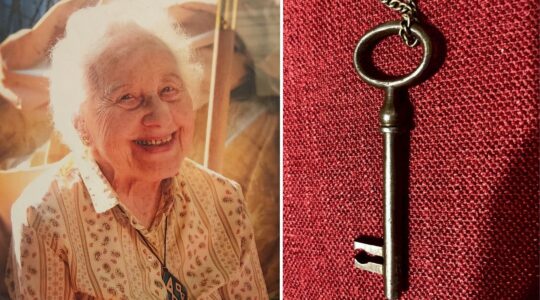(JTA) – Barack Obama’s historic visit to Cuba, the first by a sitting U.S. president to the island in 88 years, was also a milestone for the small Cuban Jewish community of about 1,500 people.
“We are living a transcendental, historic moment. We have hope and very high expectations following the restoration of diplomatic relations between Cuba and the United States,” David Prinstein, vice-president of the Cuban Jewish community, told the Agencia Judía de Noticias, following Obama’s visit, which ended Tuesday. “It’s a unique moment for both the Cuban people and for a great part of the American people.”
On the three-day, Obama focused on deepening long-neglected ties between the United States and Cuba, but he also drew a hard line on human rights abuses by the Castro government. Just hours before Obama’s arrival, Cuban authorities arrested more than 50 human rights activists at the weekly Ladies in White protest outside the capital, Havana.
Prinstein praised the recent achievements in areas such as business travel, trade and tourism following the relaxation of the U.S. embargo on Cuba. But American Jews never stopped visiting Cuba, he said. Havana’s three synagogues, two Jewish cemeteries, a Holocaust exhibition and religious services are widely visited.
Last month, Latin American young adults aged 25-40 interested in Jewish culture, education and leadership met in Havana for the Nahum Goldmann Fellowship seminar sponsored by the Memorial Foundation for Jewish Culture. It was the first time the event had taken place in Cuba since 1959.
Jews first arrived in Cuba as conversos, Spanish or Portuguese forcibly converted to Catholicism who secretly continued to practice Judaism, sailing with explorer Christopher Columbus, who landed on the largest Caribbean island in 1492. The Jewish community remained modest until the early 1900s and significant waves of immigration raised the Jewish population in Cuba to nearly 25,000.
But after the rise of Fidel Castro and the establishment of his communist government, nearly 95 percent of Jews left Cuba for the United States — mostly to Miami.
An estimated 1,500 Jews remain in the country today, according to the Latin American Jewish Congress. Several hundred also have since immigrated to Israel.

Help ensure Jewish news remains accessible to all. Your donation to the Jewish Telegraphic Agency powers the trusted journalism that has connected Jewish communities worldwide for more than 100 years. With your help, JTA can continue to deliver vital news and insights. Donate today.






